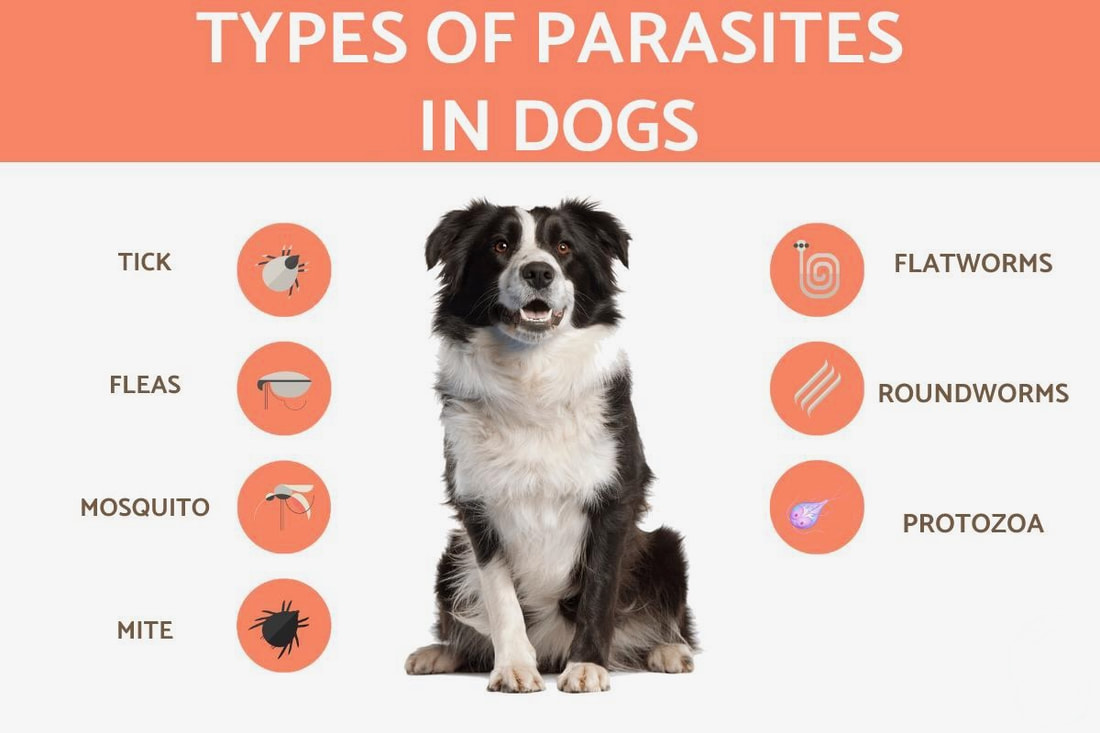This page is intended to be a purely informational resource and is not intended to replace proper veterinary advice.
Protocols change over time and there is no substitute for the professional advice of a qualified vet.
Please defer in all matters regarding the health of your puppy to your vet.
Protocols change over time and there is no substitute for the professional advice of a qualified vet.
Please defer in all matters regarding the health of your puppy to your vet.
When to Vaccinate Your Puppy
Your puppy has received the correct vaccinations for their age. However, their vaccination schedule is not complete. They will need booster shots and additional vaccinations over the following months. The next vaccine due date will be recorded on your puppy's vaccine book. Your vet should discuss this with you at your first vet visit. During your puppy’s initial examination, the veterinarian will look at the puppy's medical/vaccination history. A schedule for follow-up vaccinations should be made and communicated clearly to you.
Vaccination Protocols and Schedule
Every veterinarian will have a preferred protocol for vaccinating puppies and for follow-up vaccinations. In addition, protocols change because of new research findings for the duration of immunity provided by the vaccine. Consult with your veterinarian to learn what's best for your puppy.
Here is an example of a typical vaccine protocol for a puppy:
When to De-worm your puppy.
Parasites don't want to kill your puppy; they just want to use them as a dinner plate! This growth phase of their life is when they are most susceptible. Knowing when to worm puppies is important. Your puppy has already been de-wormed, however worms are easily re-acquired from the environment. De-worm puppies at 8, 12 & 16 weeks of age, again at 6 months and at 1 year. Then de-worm as an adult.
Intestinal worms (roundworms, hookworms, whipworms and tapeworms) are usually treated with worming tablets or syrup. Your puppy will have already been treated with Drontal Plus immediately before delivery. This is an extremely effective de-worming tablet.
Your puppy has received the correct vaccinations for their age. However, their vaccination schedule is not complete. They will need booster shots and additional vaccinations over the following months. The next vaccine due date will be recorded on your puppy's vaccine book. Your vet should discuss this with you at your first vet visit. During your puppy’s initial examination, the veterinarian will look at the puppy's medical/vaccination history. A schedule for follow-up vaccinations should be made and communicated clearly to you.
Vaccination Protocols and Schedule
Every veterinarian will have a preferred protocol for vaccinating puppies and for follow-up vaccinations. In addition, protocols change because of new research findings for the duration of immunity provided by the vaccine. Consult with your veterinarian to learn what's best for your puppy.
Here is an example of a typical vaccine protocol for a puppy:
- 6 - 7 weeks of age: First multivalent combination* vaccine.
- 9 - 10 weeks of age: Second combination vaccine.
- 12 - 13 weeks of age: Third combination injection and first Rabies vaccine.
- 16 weeks of age: Final combination vaccine and Rabies vaccine booster.
When to De-worm your puppy.
Parasites don't want to kill your puppy; they just want to use them as a dinner plate! This growth phase of their life is when they are most susceptible. Knowing when to worm puppies is important. Your puppy has already been de-wormed, however worms are easily re-acquired from the environment. De-worm puppies at 8, 12 & 16 weeks of age, again at 6 months and at 1 year. Then de-worm as an adult.
Intestinal worms (roundworms, hookworms, whipworms and tapeworms) are usually treated with worming tablets or syrup. Your puppy will have already been treated with Drontal Plus immediately before delivery. This is an extremely effective de-worming tablet.
Parasites (internal & external)
Ticks and fleas are a major issue for pet owners in Thailand, While a flea infestation in the house is certainly something that pet owners will want to avoid, ticks represent a real risk to the health and even life of your puppy. There are 5 common tick-borne blood parasites infections that your puppy can contract from tick bites. There are several methods for preventing ticks and fleas including: tick & flea collars, sprays, shampoos, powders, spot on treatments, tablets and injections. Your puppy will be treated with Frontline Plus spot-on treatment immediately before delivery. This is an extremely effective treatment against fleas and ticks and must be administered only once every month.
Skin mites and ear mites are fairly common but will usually cause visible symptoms (e.g. skin issues, dark red ear wax) and are usually treated when symptoms appear rather than preventively (Revolution spot-on is an effective treatment against both and will also control ticks and fleas).
Heartworms are transmitted by mosquito bites, can be fatal and are a major concern for pet owners in Thailand, especially for those with outdoor dogs. They can be prevented with a yearly injection or a number of other monthly treatments that you can speak to your vet about.
In our opinion, the most effective treatment against all parasites, both internal and external is NexGard Spectra. This is an all-in-one monthly tablet to give to your dog and is very effective against all of the parasites mentioned above (ticks, fleas, mites, heartworms & intestinal worms).
*Multivalent Vaccines
One common multivalent vaccine used for dogs is DHLPPCv. Instead of giving six different injections, all these "vaccines" or antigens can be given in a single small volume injection. Certainly administering the DHLPPCv is easier on your puppy than getting six separate injections.
D - Canine Distemper Virus - This contagious and serious viral illness has no known cure, which makes it even more vital for your puppy to have a vaccine that combats it.
H - Hepatitis - This viral infection is actually caused by two related viruses; it mainly affects the liver.
L - Leptospirosis - This bacterial infection affects a puppy's kidneys. It can also infect humans, cows, dogs, pigs and other mammals.
P - Parainfluenza - This virus can cause upper respiratory infections in puppies.
P - Parvovirus - A severe and often fatal virus that affects the lining of the intestinal tract.
Cv - Coronavirus – In the absence of complicating factors, generally not considered serious.
Ticks and fleas are a major issue for pet owners in Thailand, While a flea infestation in the house is certainly something that pet owners will want to avoid, ticks represent a real risk to the health and even life of your puppy. There are 5 common tick-borne blood parasites infections that your puppy can contract from tick bites. There are several methods for preventing ticks and fleas including: tick & flea collars, sprays, shampoos, powders, spot on treatments, tablets and injections. Your puppy will be treated with Frontline Plus spot-on treatment immediately before delivery. This is an extremely effective treatment against fleas and ticks and must be administered only once every month.
Skin mites and ear mites are fairly common but will usually cause visible symptoms (e.g. skin issues, dark red ear wax) and are usually treated when symptoms appear rather than preventively (Revolution spot-on is an effective treatment against both and will also control ticks and fleas).
Heartworms are transmitted by mosquito bites, can be fatal and are a major concern for pet owners in Thailand, especially for those with outdoor dogs. They can be prevented with a yearly injection or a number of other monthly treatments that you can speak to your vet about.
In our opinion, the most effective treatment against all parasites, both internal and external is NexGard Spectra. This is an all-in-one monthly tablet to give to your dog and is very effective against all of the parasites mentioned above (ticks, fleas, mites, heartworms & intestinal worms).
*Multivalent Vaccines
One common multivalent vaccine used for dogs is DHLPPCv. Instead of giving six different injections, all these "vaccines" or antigens can be given in a single small volume injection. Certainly administering the DHLPPCv is easier on your puppy than getting six separate injections.
D - Canine Distemper Virus - This contagious and serious viral illness has no known cure, which makes it even more vital for your puppy to have a vaccine that combats it.
H - Hepatitis - This viral infection is actually caused by two related viruses; it mainly affects the liver.
L - Leptospirosis - This bacterial infection affects a puppy's kidneys. It can also infect humans, cows, dogs, pigs and other mammals.
P - Parainfluenza - This virus can cause upper respiratory infections in puppies.
P - Parvovirus - A severe and often fatal virus that affects the lining of the intestinal tract.
Cv - Coronavirus – In the absence of complicating factors, generally not considered serious.


